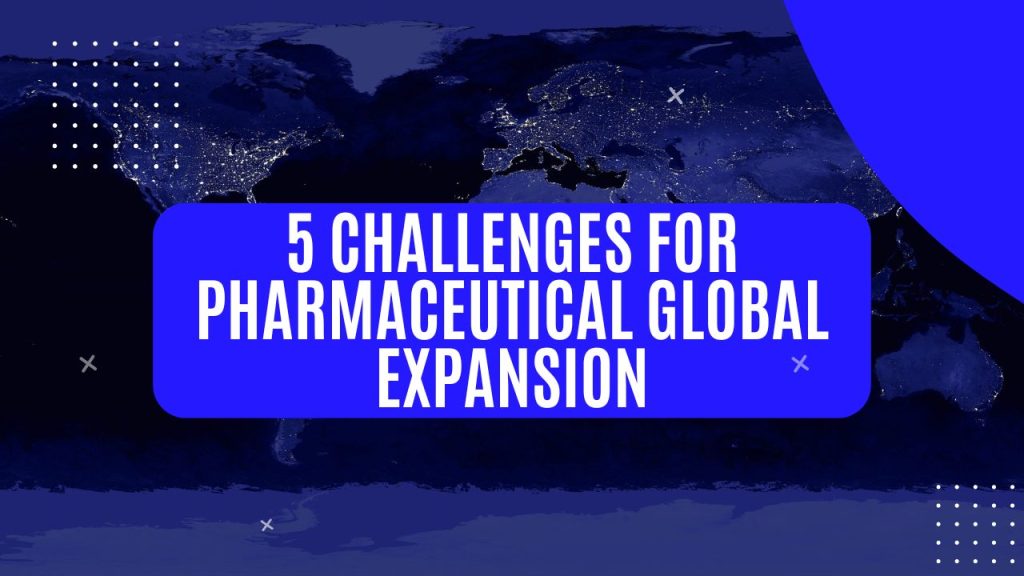
Pharmaceutical global expansion comes with significant multilingual challenges. Let’s delve into five of these challenges in detail.
According to the IQVIA Institute, global medicine spending growth is expected to accelerate over the next five years.
Statista adds the projected revenue in the pharmaceutical market is estimated to reach US$1.15B in 2024. The revenue in this sector is anticipated to exhibit an annual growth rate (CAGR 2024-2028) of 6.19%. That will result in a market volume of US$1,470.00bn by 2028.
The United States has by far the largest market share. Countries like China, Japan, Germany, France, Italy, Spain and Brazil are on the rise, though.
In fact, in 2022, the growth rate of Brazil’s pharmaceutical market stood at nearly 18 percent. That’s significantly higher than that of any other leading national pharmaceutical market.
Pharmaceutical global expansion comes with significant multilingual challenges, though. They must must be addressed effectively to ensure regulatory compliance, patient safety, and successful market penetration.
Let’s delve into five of these challenges in detail.
1: Regulatory Compliance
One of the primary challenges for pharmaceutical companies expanding globally is navigating the complex landscape of regulatory requirements in different countries.
Each region has its own set of regulations regarding drug approvals, labeling, packaging, and marketing materials. These regulations often include language-specific requirements. That includes mandatory translations of product information into official languages or specific language standards for medical terminology.
Pharmaceutical companies must work closely with regulatory experts and language professionals to ensure that all documentation, including clinical trial data, drug labels, patient information leaflets, and marketing materials, are accurately translated and compliant with local regulations.
Failure to meet these requirements can result in delays in market entry or even legal repercussions.
2: Medical Terminology and Accuracy
The pharmaceutical industry relies heavily on precise and standardized medical terminology to communicate essential information about drugs, treatments, and patient safety.
Translating medical content accurately while maintaining consistency and clarity across languages is a significant challenge.
Translators and linguists with expertise in medical and pharmaceutical terminology are crucial for ensuring the accuracy of translated materials.
Companies may also use terminology management tools and glossaries to maintain consistency. This reduces the risk of errors or misunderstandings in translated content.
3: Cultural Sensitivity and Market Adaptation
Cultural differences play a vital role in how pharmaceutical products are perceived and accepted in different markets.
Messages that resonate well in one culture may not have the same impact or may even be misunderstood in another.
Pharmaceutical companies must consider cultural sensitivities, beliefs, and practices when developing marketing campaigns, patient education materials, and promotional content.
Adapting content to local cultures and languages requires cultural competence, market research, and collaboration with local experts or agencies to ensure that messaging is relevant, respectful, and effective.
4: Translation Quality and Validation
Maintaining high translation quality is essential for pharmaceutical companies to uphold their reputation, ensure patient safety, and comply with regulatory standards.
Translations must be accurate, consistent, and culturally appropriate, especially for critical information related to drug efficacy, side effects, dosage instructions, and warnings.
Quality assurance processes such as translation validation by subject matter experts, linguistic validation of patient-reported outcome measures, and back translation for sensitive content are vital steps in ensuring translation accuracy and reliability.
For example, linguistic validation of patient-reported outcomes measures (PROs) is a process aimed at ensuring that questionnaires, surveys, or other instruments used to collect data directly from patients are accurately translated and culturally adapted for use in different languages and cultural contexts.
This process is particularly important in healthcare and pharmaceutical research, where PROs play a crucial role in assessing patient experiences, quality of life, symptoms, and treatment outcomes.
5: Technology Integration and Data Security
Advancements in translation technology, such as machine translation and artificial intelligence, offer opportunities to streamline translation workflows and improve efficiency.
However, integrating these technologies while maintaining data security and confidentiality is a challenge, particularly in the highly regulated pharmaceutical industry.
Pharmaceutical companies must implement robust data protection measures, comply with privacy regulations (e.g., GDPR, HIPAA), and ensure that translation tools and platforms meet industry standards for security, accuracy, and reliability.
How We Can Help with Pharmaceutical Global Expansion
With our long history in the medical field, we provide translations and localization with 100% accuracy.
Even though quality and accuracy are paramount, we always operate within your budget.
Our clients include:
- medical and surgical device manufacturers
- research tool companies
- clinical diagnostic firms
- patient recruitment and clinical trials
- pharmaceutical and biotech companies.
Whether your company won CE Mark approval recently, been granted 510k Approval, or anything else, we understand the importance of 100% accurate data and medical information translation.
Talk to one of our specialists to determine how we can help.


